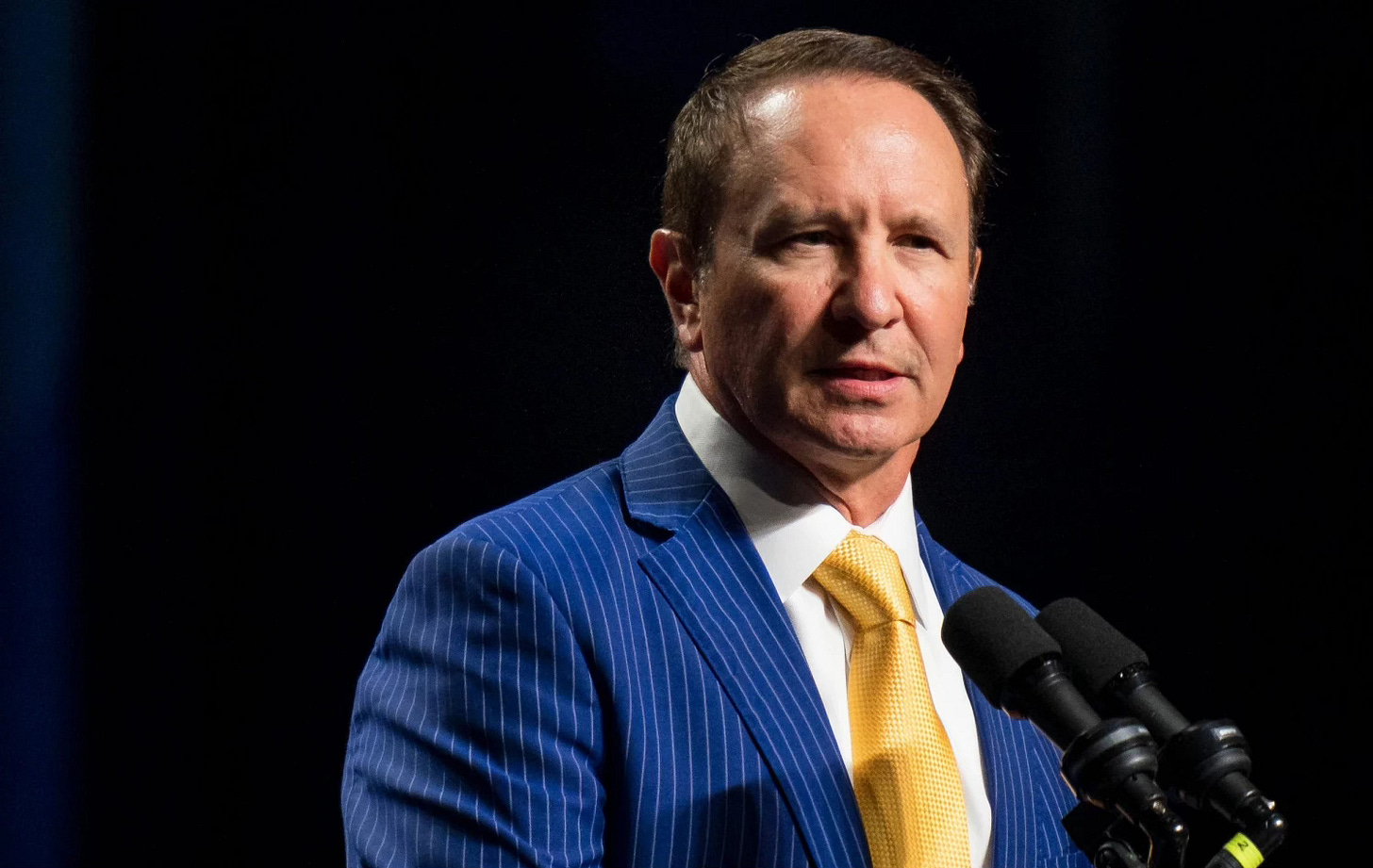Ethics Under Fire: Louisiana Legislature Reshapes Oversight Amid Charges Against Governor Landry
By The Bayou Insider Staff
In a move that’s sending shockwaves through Louisiana’s political landscape, state lawmakers have passed sweeping changes to the ethics laws governing public officials. The bill—House Bill 674—raises serious questions about accountability, oversight, and the future of clean government in a state still trying to shake its reputation for corruption.
And at the center of it all? Governor Jeff Landry, who faces ethics charges of his own.
A Storm Brewing in Baton Rouge
House Bill 674, passed in early June, alters the balance of power within the Louisiana Board of Ethics in dramatic fashion. Most notably, it requires a two-thirds supermajority vote to launch an ethics investigation or formally file charges. Previously, a simple majority was sufficient.
Critics say the timing is no coincidence. Governor Jeff Landry is currently under investigation for failing to disclose private plane flights paid for by a political donor during his time as Attorney General. The governor is expected to sign the bill into law in the coming days.
What the Bill Actually Changes
A Higher Bar for Investigations
At the heart of the legislation is a new requirement: any investigation or formal charge against a public official must now receive at least a two-thirds vote of approval from the Board of Ethics. With 15 members on the board, that means 10 votes are needed—making it significantly harder to initiate investigations.
“This change severely weakens the ability of the board to act independently,” said one former ethics board member who spoke on background. “It gives political appointees the power to block cases before they even begin.”
Subpoena Transparency—Or Interference?
Another controversial provision requires the board to notify the subject of an investigation about every subpoena issued during the inquiry. That includes subpoenas for financial records, communications, and witness statements.
Ethics watchdogs say this creates a dangerous opportunity for obstruction.
“It’s like handing the playbook to the person under investigation,” warned the Public Affairs Research Council of Louisiana (PAR). “It allows them to intimidate witnesses or destroy evidence before it’s even reviewed.”
Who Gets to Trigger an Investigation?
Previously, the board could open an inquiry based on news reports, whistleblower complaints, or tips from private citizens. Under the new law, those sources can no longer trigger an investigation without additional government confirmation.
This limits the board’s responsiveness and reduces the role of independent media and concerned citizens in exposing misconduct.
A Governor with a Tight Grip
Perhaps most concerning to critics is how the legislation consolidates power within the governor’s office. Of the 15 seats on the Board of Ethics, the governor now appoints nine.
That gives the state’s top elected official substantial influence over the very board tasked with holding him accountable.
Governor Landry’s opponents say it’s a blatant conflict of interest—especially considering that his personal attorney, Stephen Gelé, helped draft the legislation. Gelé is also representing Landry in his pending ethics case.
The Charges Against Landry
In 2023, then-Attorney General Jeff Landry allegedly took multiple flights on a political donor’s private jet and failed to disclose them as required by state law. The Board of Ethics opened a case, and the charges have since followed him into the governor’s mansion.
Though HB 674 won’t apply retroactively to his case, the optics are troubling. The bill’s passage amid the controversy feels to many like the rules are being rewritten mid-game.
Supporters Say It’s About Due Process
Those backing the bill argue it ensures fairness for public officials and protects them from politically motivated or frivolous investigations. They claim the Ethics Board has too often acted with limited accountability of its own.
“This is about restoring balance and giving people their day in court,” one lawmaker said during debate.
But opponents aren’t buying it.
Critics Call It a Step Backward
“This isn’t about fairness—it’s about shielding the powerful,” said PAR in a recent statement. “These changes make it harder to investigate and easier to get away with unethical behavior.”
Government watchdogs fear this may be the first domino in a broader erosion of independent oversight in Louisiana.
What’s Next?
The bill has passed both chambers of the Legislature and is awaiting the governor’s signature. Unless vetoed—a highly unlikely scenario—HB 674 will become law later this summer.
In the meantime, many are bracing for more political fallout, including potential lawsuits or constitutional challenges.
A Defining Moment for Louisiana
Louisiana has spent decades trying to shake the ghosts of political corruption. From Edwin Edwards to the Bobby Jindal era, ethics reform has been an uphill battle. Now, some worry the state is slipping backward.
Governor Landry’s administration insists it’s committed to transparency. But critics argue that transparency without accountability is just window dressing.
Whether this moment proves to be a minor storm or a major flood for Louisiana politics depends on how voters—and future lawmakers—respond.
Want to weigh in? Share your thoughts with The Bayou Insider as we continue to track the fallout from this major shift in Louisiana ethics law.
How Louisiana’s 'Good Old Boys' System Still Runs the Show—Even in the GOP
By The Bayou Insider Staff





